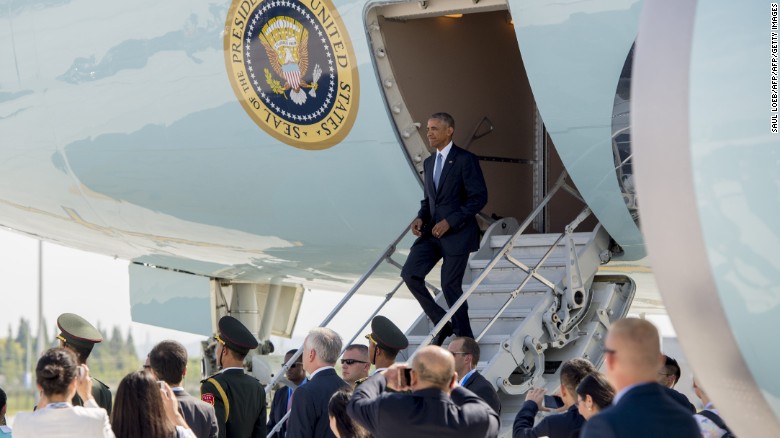Hangzhou, China – US President Barack Obama is continuing his diplomatic slog in China Sunday, meeting with counterparts from the United Kingdom and Turkey — two essential US allies — as each leader confronts widespread internal strife back home.
He was also hoping to reach some agreement with Russian President Vladimir Putin to end widespread suffering in Syria, though any deal was likely to be met with skepticism after past settlements failed. Obama and Putin were expected to interact during this week’s Group of 20 summit, though a formal meeting was not on the books.
Brexit blues
During a morning session with Prime Minister Theresa May, Obama was planning to gauge the newly installed leader’s plans for executing Britain’s exit from the European Union, a move the US has insisted must proceed in an organized fashion.
It’s Obama’s first face-to-face encounter with May since she replaced David Cameron, a close Obama ally who resigned in the aftermath of the Brexit vote. Obama took the unusual step of personally lobbying against Britain’s exit from the EU, but has said the “special relationship” between the US and the UK would continue.
It’s the second day of high-stakes diplomacy for Obama, who arrived here Saturday to an inauspicious welcome: no red-carpeted stairs for Air Force One and open quarreling on the tarmac between Chinese and US officials over press access. Other leaders arriving for the G20 here were greeted with a far grander welcome.
The rancor continued throughout Saturday as Obama met with Chinese President Xi Jinping to cement a carbon reduction agreement and haggle over longstanding disputes like cybersecurity and maritime aggression.

Turkish troubles
Later Sunday Obama was set to meet Turkish President Recep Tayyip Erdogan, a prickly leader who remains nonetheless indispensable to the United States.
Since an attempt to overthrow him failed in July, Erdogan has taken harsh tactics to consolidate power, worrying human rights advocates and US officials alike.
The Turkish leader is expected to press Obama on an extradition request for US-based cleric Fethulah Gulen, under suspicion in Turkey for helping plot the coup. Gulen denies involvement, and the US is demanding evidence of his participation, but rejecting the request could worsen ties between the two countries.
For the US, alienating Erdogan remains an unwelcome prospect given Turkey’s critical role in the battle against ISIS in Iraq and Syria. Even on that front, disagreements persist. Washington has pressed Ankara to end airstrikes on Syrian Kurds, whom the US is backing in the fight against ISIS terrorists.
Frosty ties
Deep divides over Syria have also marred Obama’s relationship with Putin, adding to a litany of discord between the US and Russia that’s driven relations to their lowest level since the Cold War.
This week’s interaction between Obama and Putin could be a final attempt to salvage what’s become one of the most acrimonious relationships on the global stage. Putin’s persistent support for the Syrian regime, Moscow’s moves in Ukraine and the charge that Russia may be meddling in the US presidential contest have built a deeply antagonistic dynamic between the two leaders.
A deal on Syria could place US-Russia ties in a firmer position as Obama prepares to leave office. American diplomats have been pressuring Moscow to use its influence in Damascus and force the Syrian regime to end its strikes on civilians and US-backed opposition fighters.
As reported by CNN
